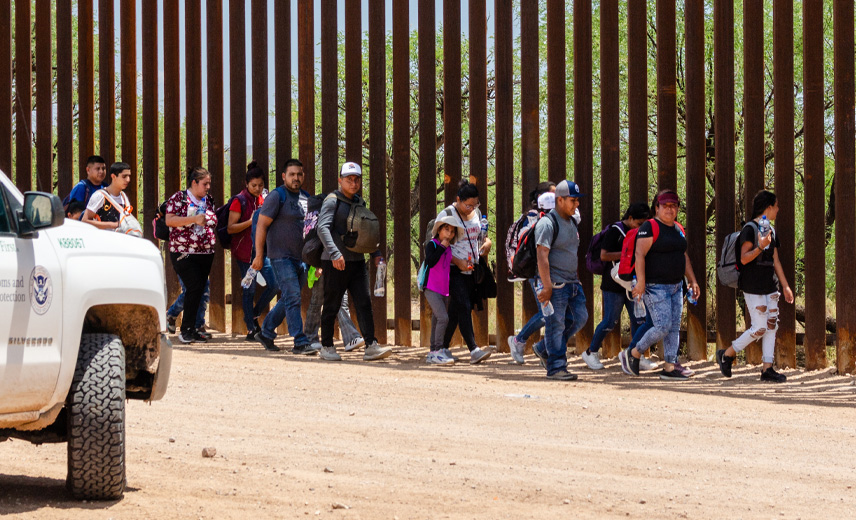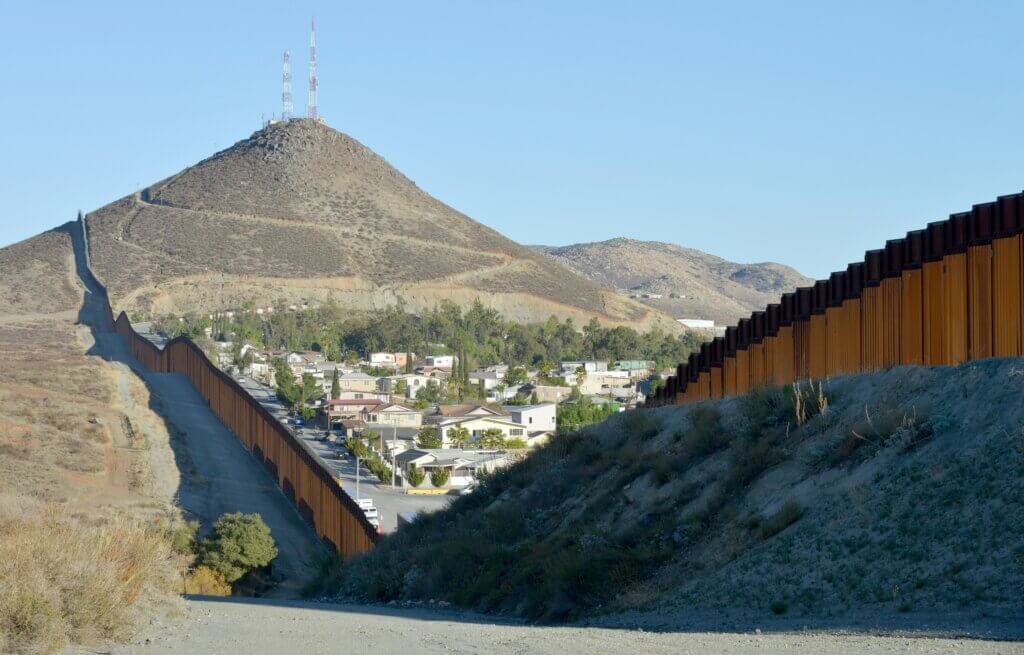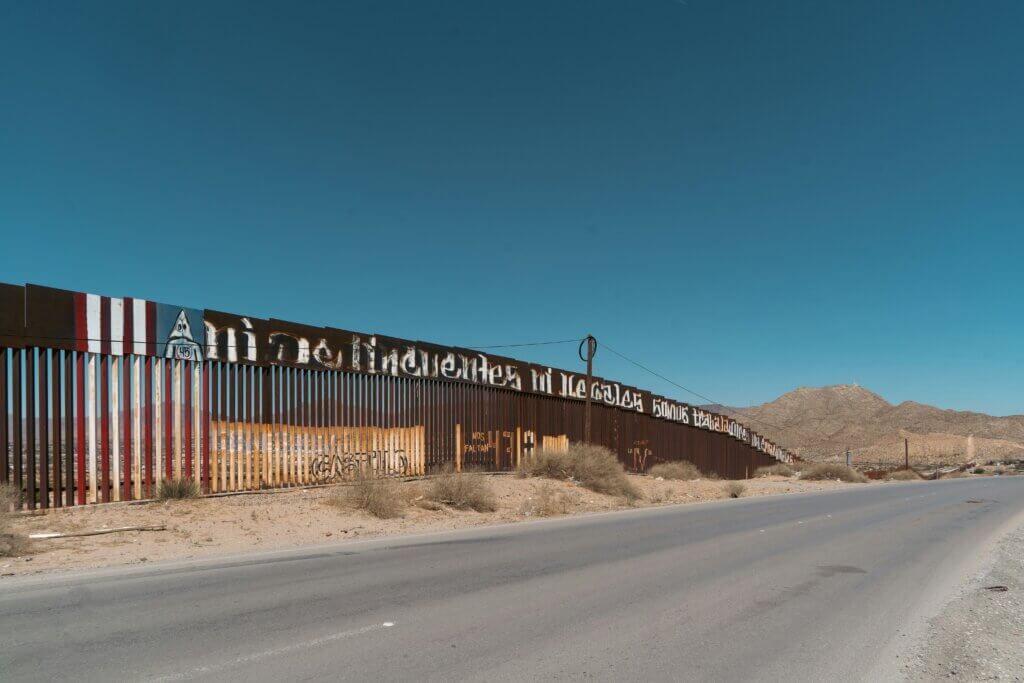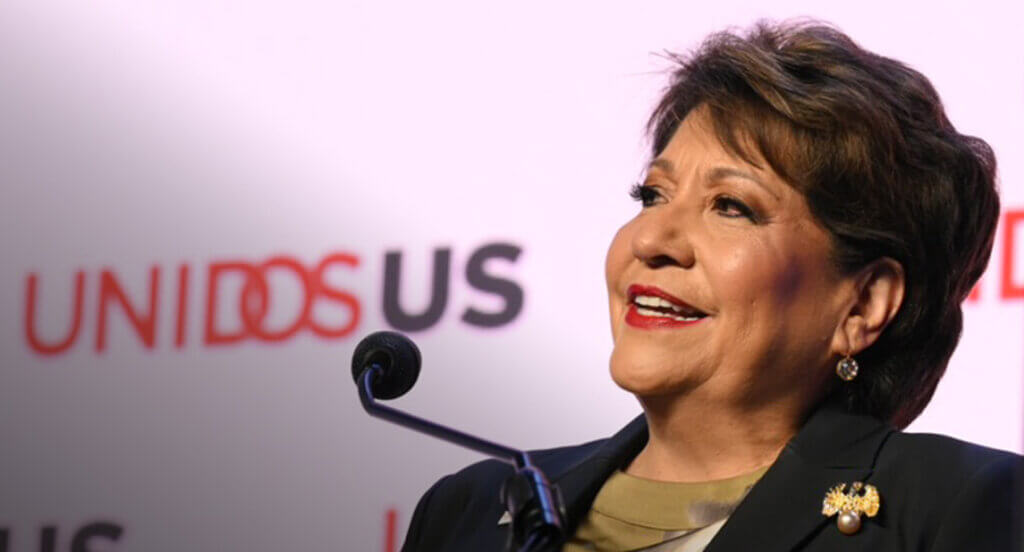Firm, Fair and Free of Cruelty Part 3: Latino Voters’ Views About the Situation at the U.S.-Mexico Border from UnidosUS’s Immigration and Border Management Poll
By Cristobal Ramón and Viktor Olah
UnidosUS recently released a major poll assessing the views of registered Latino voters on the situation at the U.S.-Mexico border. The nationwide, Arizona, Nevada and Pennsylvania polls outline the reasons these respondents want a border policy that is firm, fair and free of cruelty. Although they have concerns about the U.S.-Mexico border, they are sympathetic to border arrivals. That said, they want lawmakers to help the long-residing undocumented, which has major implications for their border policy preferences.
Keep up with the latest from UnidosUS
Sign up for the weekly UnidosUS Action Network newsletter delivered every Thursday.
The polls found that Latinos are very concerned about the situation at the U.S.-Mexico border. When asked about their concern about the border, 76% of responders were concerned, 46% being very concerned. Latinos in Arizona, Nevada and Pennsylvania are also concerned about the situation at the border. Pennsylvanians are the most worried (79%), and Nevadans are third (69%).
Figure 1: Latinos’ Level of Concern About the Situation at the Border

They are similarly critical about the issue not receiving enough attention. In the nationwide poll, 50% believe the government needs to focus on the border more while 51% of Pennsylvania, 49% of Arizona and 41% of Nevada criticize lawmakers for not placing enough attention on the border.
Figure 2: Breakdown of Latinos’ View Whether the Border Receives Enough Attention

Despite the high levels of concern, the polls found the respondents were sympathetic to border arrivals. When asked to rate their sympathy on a scale of 1-10, 62% of nationwide respondents’ answers fell between 6-10, which reflected these positive views. In the state polls, 60% of Arizonans, 67% of Nevadans and 56% of Pennsylvanians Latinos selected similar ranges, similar levels of consistency on these views at the state level.
Figure 3: Breakdown of Latinos’ sympathy for border arrivals on a scale of 1-10
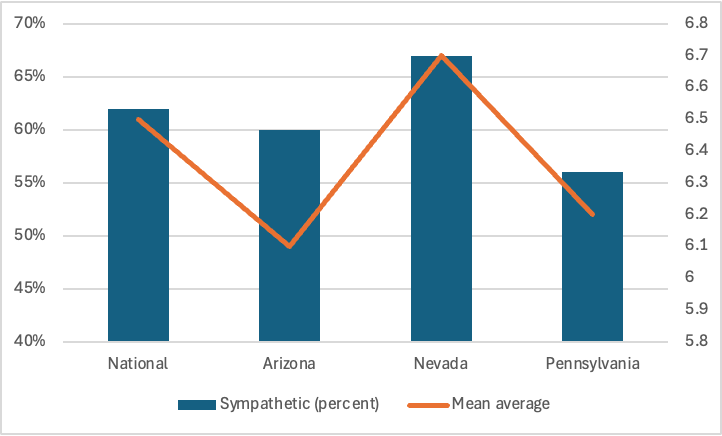
However, the poll also found that the respondents wanted the challenges facing long-residing undocumented to receive more attention. 39% of respondents from the national poll said these migrants receive insufficient attention relative to newer arrivals. While Nevadans (37%) and Pennsylvanians (34%) in these polls expressed the same sentiment, Arizonan Latinos were more split on the question, with 35% more frustrated by the lack of support for long-term undocumented and 34% by the border.
Figure 4: Breakdown of Latinos’ main source of frustration about migration
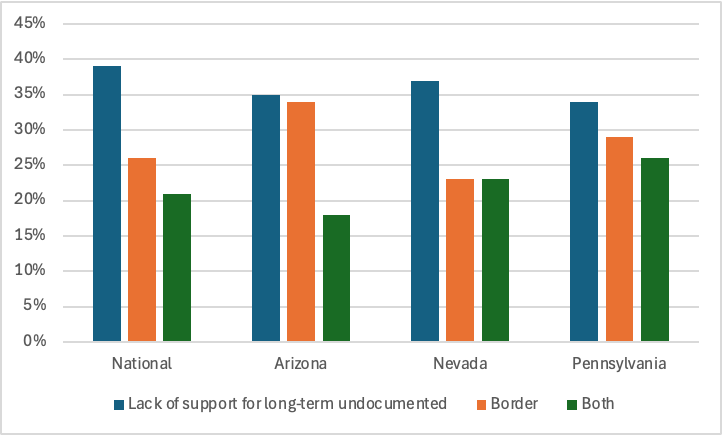
Conclusion: Relief as a Core Component of a Firm, Fair, and Cruelty Free Border Policy
These results may suggest the reasons Latino voters may prefer a border policy that is fair, firm and free of cruelty. The concern about the state of the border likely explains a preference for firm measures that tackle human and drug traffickers and expands border patrol’s roster of agents and funding. The respondents’ sympathy for border arrivals may also explain their openness to fair and firm measures for border arrivals, especially with working with other countries to address common asylum seeker challenges.
The results may also suggest why relief for the undocumented figures heavily for measures that are fair and free of cruelty. Although the respondents want a border policy that helps border arrivals in many instances, their frustration with the lack of attention paid to long-residing undocumented individuals may partially explain why relief emerged as the second border policy priority for the poll’s respondents. Rather than simply being a “domestic-facing” immigration policy, the polls show Latino’s view relief is an essential part for establishing a secure border through a firm, fair and cruelty free border framework.

